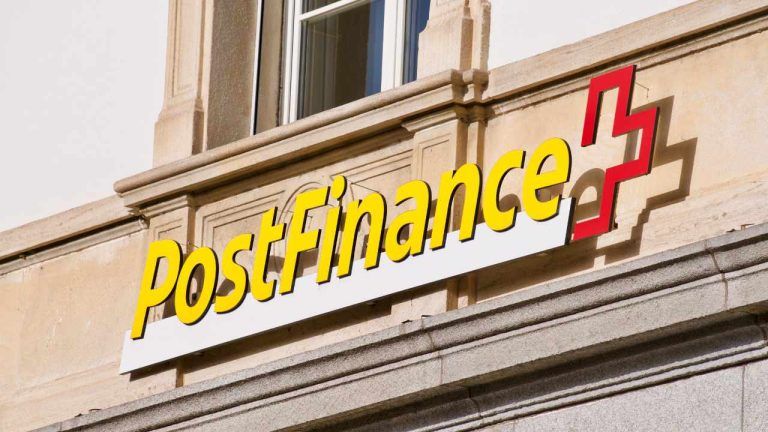
Swedish Regulators Call for EU Ban on Crypto Mining, Power Company Defends Industry

Alarmed by the rising energy needs of cryptocurrency mining, Sweden’s financial and environmental regulators have recently proposed an EU-wide ban on proof-of-work coin minting. The Swedish officials believe this would encourage a move towards a more energy-efficient extraction of bitcoin while supporting the transition towards climate neutrality in Sweden and Europe. A state-run power company warns, however, that restrictions could have an adverse effect on global carbon emissions.
Expensive Bitcoin Generates More Emissions, Swedish Authorities Allege
The rising value of crypto assets attracts more businesses to join the competition to solve the encryption puzzle at the core of cryptocurrency mining while the proof-of-work method is the main reason for its high energy consumption. The remarks come from a joint statement by the director generals of Sweden’s Financial Supervisory Authority and Environmental Protection Agency, Erik Thedéen and Björn Risinger.

The two officials have recently issued a call for the prohibition of energy-intensive mining of digital currencies across the European Union, citing various concerns including the migration of miners to other destinations after China’s crackdown. In the Nordic region, for example, their appetite for renewable energy could undermine the transition towards climate neutrality and the efforts to meet the Paris Agreement goals.
The government executives quote different estimates highlighting the power-hungry nature of crypto mining such as the one that Bitcoin and Ethereum together use around twice as much electricity as Sweden or the claim that a mid-size electric car can be driven 1.8 million kilometers with the energy burned to mint a single bitcoin. They further point out:
Our conclusion is that policy measures are required to address the harms caused by the proof-of-work mining method. It is important that both Sweden and the EU can use our renewable energy where it provides the greatest benefit for society as a whole.
Thedéen and Risinger believe that governments have several policy options to address the issue. “For instance, Sweden and other countries could introduce a tax on the energy-intensive production of bitcoin. Another option is to communicate more widely around the climate problems related to crypto-assets, in the hope that this will lead to both producers and investors demanding a shift to mining methods that require less energy,” they elaborate.
As demand for crypto assets continues to grow at a fast pace, however, the Swedish officials are worried that neither of these moves would adequately limit the harm caused to the environment. “The emissions need to stop here and now, and renewable energy needs to be used for the climate transition of essential services.”
The heads of the Swedish regulatory bodies have called on the EU to consider a blanket ban on proof-of-work mining. Other methods, they insist, can reduce energy consumption by over 99%. The directors want Sweden to halt the establishment of new facilities employing energy-intensive coin minting methods. They also propose to prohibit companies from trading and investing in crypto assets mined with a proof-of-work process to advertise themselves and their activities as sustainable.
Such steps could encourage crypto miners to relocate to other countries and increase global carbon emissions anyway, the authors of the proposal have admitted. Nevertheless, they think Sweden and the EU should set an example for other countries and regions. Thedéen and Risinger emphasize:
A ban on the proof of work mining method within the EU could be an important first step in a global move towards a greater use of more energy-efficient crypto mining methods. It would also mean that our renewable energy is used as efficiently as possible in order to support the transition towards climate neutrality.
According to the statement published by Finansinspektionen, electricity consumption in Sweden’s bitcoin mining sector has increased significantly, already reaching 1 TWh annually. This amount of energy would be sufficient to satisfy the power needs of at least 200,000 households, the Swedish regulators calculate.
Meanwhile, the country’s state-owned power generation company Vattenfall has defended cryptocurrency mining. It views bitcoin extraction as an industrial activity that can actually help electricity producers to overcome some of the challenges they are facing. Henrik Juhlin, head of Physical Power Management at Vattenfall, told the Swedish public broadcaster SVT that mining has the potential to balance loads on electrical grids.
This is the case when power supply varies, sometimes exceeding demand, and is especially valid for countries like Sweden which increasingly use renewable sources. Wind and solar power generation depend on factors that are beyond human control and consumption by crypto farms can play the role of a buffer at times when there is a surplus of available electricity. Juhlin also warned that banning crypto mining in the EU could in fact increase carbon emissions around the world as the industry could relocate to regions relying on fossil fuels such as coal.
Do you think Sweden’s proposal for an EU ban on proof-of-work crypto mining will gather support from other member states? Share your thoughts on the subject in the comments section below.
Go to Source
Author: Lubomir Tassev









